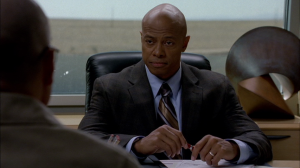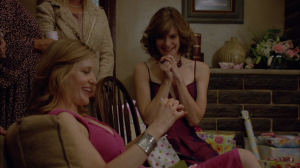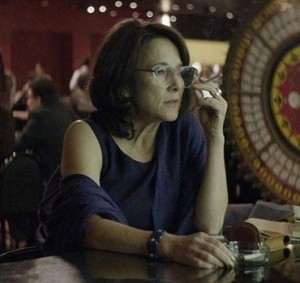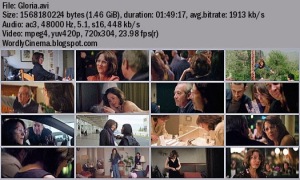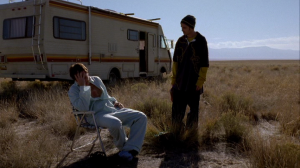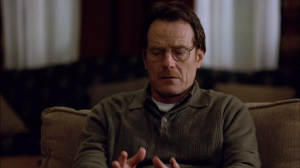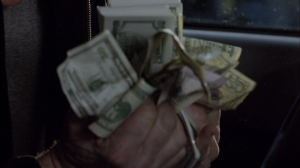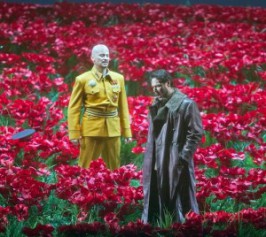
Saajan Fernandes (Irran Khan) and Lla (Nimrat Kaur) in The Lunchbox (2013)

Marion (Dame Janet Suzmann) and Solomon (Khayalethu Anthony) in Solomon and Marion (2014)
Dear friends and readers,
This weekend I managed to see and want to recommend two poignant (and at moments comic) dramatized stories from abroad about an unexpected or unlikely couple finding meaning and solace in one another. This seems to be almost a theme of this year: it’s the core of Philomena too. They are both parables about contemporary lonely and politically shattered lives in large cities and small country towns.
The first is easier to reach as it is a film, directed and written by Ritesh Batra, and still in theaters and where Izzy and I went had a reasonably large audience in the auditorium. As she wrote, it is probably wise to read about dabbawalas at wikipedia first — though it is not necessary as the opening sequence takes you on a journey of the lunchbox in question from the house of LLa, the housewife who put the hot delicious food in its containers, through the streets, trains, carts, and to the office and desk of Saajan, the managerial clerk who is lucky enough wrongly to receive it. The film is as much a study of the lives of modern Indians living in over-crowded Mumbai (Bombay), individually isolated, lonely, and with little chance of doing anything personally fulfilling.
Since I’ve been reading about the supposed universal paradigm underlying most screenplays in cinema, it felt beautifully ironic to find myself watching a film which does not fit into this, mostly because it’s not western in origin, and its patterning is a much modified descendent of the popular 2 and 1/2 hour extravaganza of music, dance, and story Bollywood is famous for. I’ve no doubt that Syd Field and others would still say that in the first ten minutes of the film we are introduced to the main characters (the two principals), and the dramatic premise and situation of the film: they are lonely, without any friend.
Saajan is an office worker, a widower, spending long days in a impersonal overcrowded place, traveling amid crowds to and fro, and then sitting with his books; Lla is a housewife whose husband is unfaithful and she is stuck at home with only an aged woman (auntie) who is taking care of a dying husband above stair to talk to. The carefully prepared lunch Lla is making is intended to appeal to her husband but arrives at the wrong place, she realizes this, and she and Saajan begin to correspond, so private writing selves emerge. The central phase does show the two characters’ needs and obstacles put in the way: how are they to find out one another’s names, and meet and become fully realized friends — perhaps lovers? There are plot points which take the movie in other directions: an orphaned young man, Shaikh (Nawwasudden Siddiqui) is to replace Saajan who is retiring, and slowly wins over the older man to the point Saajan begins to share this lunch with Shaikh and Shaikh offers Saajan another outlet and distraction (as they slowly become friends during their temporary relationship). Finally Saajan and Lla arrange to meet face-to-face, a meeting to which LLa comes and where she waits fruitlessly for hours and hours; Saajan does finally get himself to come (late), but he does not have the courage to show himself as he feels he is so much older than she and will not be attractive to her. The acting by Khan is as usual superb — the man is pitch perfect in gesture, face, body language – and Kaur and Siddiqui more mutely implicitly appealing.
Nonetheless, the review in the New Yorker was harsh and declared the film meandered and went nowhere, was a muddle,”a slight undeveloped anecdote.” Another reviewer sounded surprised that the movie is attracting audiences. These are signs that indeed this film has a counter-prevailing structure, one that is partly cyclical for the arrival and departure of the lunchbox occurs over and over as do these notes, the housewife’s day, the worker’s evenings before the TV, the young man’s training. There are moments that music breaks out showing the origins of the this other structure; on the other hand, it felt like an epistolary novel dramatized; the notes could have been emails were this set in New York City. It used the still reprehended over-voice repeatedly:
I will say that the lack of the paradigm working forcefully and a forward thrust of action in the film extends to a lack of resolution and puzzle and disappointment at the end for both Izzy and I. It was not that we were insistent on the couple getting together and retiring elsewhere — in the film a longed-for idealized place for retirement, Bhutan, but we couldn’t understand what what is literally happening at the film’s very end. Near the film’s close she sends Saajan the lunchbox with empty containers in it, so hurt is she that he did not come to the rendez-vous; he answers explaining that he was there but unable to show himself to her, but it seems to take her time to decide to come to his office to see him and in the interim he retires and when she shows Shaikh informs her wrongly Saajan has gone to Bhutan. She hurries home and within a day or so, prepares a suitcase and her one daughter’s things, and takes the immense step of leaving the husband and traveling to Bhutan. In fact Saajan has gone to a cheaper place he had originally intended to go, Nashik, found it worse than where he was living, more desolating and returned to his apartment. He seems to look for her but does not go to her house (as he does not know where it is) and is last seen on a train but not one going outside of India but rather within the city.
The wikipedia article informed me that he was going in search of Lla, implying that he would discover she had left for Bhutan and follow her. If the feel of the film was that we were seeing how tragically easy it is for chance and human irresolution to get in the way of happiness, then I would not complain. Instead it simply lacked clarity and I was left sad and (as Izzy said) longing for them to become a couple. Perhaps though its inconsequent ending made it yet truer to our lives today.
You will have to find the play by Lara Foot (she was also the director of this production) done in another theater. It was the last of many places performed at the Kennedy Center over the last 21 days: a “World Stages” festival where plays and acting companies from around the world were brought together, as many as three or four done a day, some as dramatic readings and some with panels to discuss the performance afterward. There were exhibits from London, Paris, and South Africa, of life-size puppets and human figures in what looked like carousels: these were recognizable figures from plays, operas, the arts. Drawings of costumes from costume designers.
It made me sad to go there today as this was just the sort of event Jim would have loved to go to: he would have bought tickets for at least several of the plays, we would have attended readings and perhaps even panels (though he was not as keen on this kind of thing, finding the talk all too often silly, or coming from a conventionally moralistic point of view. I had bought myself two tickets, the other for a play from Iceland, a romance taking place during the financial crisis of 2008 (the couple in the banner above were in that play), now overcome by decent social governmental measures, and I had forgotten to go. A Freudian oversight? I had underlined a dramatic reading of a story from the horrifying seige on Fallujah inflicted on its people by barbaric US military acts: I did remember that but it was so cold that day and without the car it is a trek for me to get to the Kennedy Center because of waiting for a bus that comes once an hour. I had bought my two tickets during the time when my license was still un-suspended and had fully expected to be able to drive to the Metro and then take the train.
Today and yesterday Izzy and I did have this positive thing occur: we learned that we can order a much cheaper Uber cab, a small taxi like vehicle and it cost me just $6 to be taken to the station, and for the two of us just $8 each way to and from Shirlington. When we would go with Jim, he’d take the car all the way to the Center and pay $20 to park, go early and eat at the Terrace theater (a much overpriced meal); parking at Shirlington is hellish to find and it costs at least $15 so I now feel I am free to call for the Uber cab — when I can get the app on the iphone to work.
But to Foot’s play. Janet Suzman plays Miss Marion, an aging white African woman, a widow living on an isolated farm to whom comes Khayalethu Anthony, or Solomon a young black African man sent by his grandmother, once a housekeeper for Miss Marion and now worried she is in need of help and company. Their interactions are interwoven with her soliloquies given the excuse that she is writing letters to her married daughter, Annie, living in Australia. It was 90 minutes of intensities with no intermission. It opens with a fearful nightmare sequence.
What emerges is she had a son who was brutally murdered by a gang of bullying thugs when he was in his teens; after that she and her husband separated. Solomon was there at the murder as a witness and he has come because he wants to tell her a message her son sent to her, and confess that he was a coward, fearful of coming forward as a witness lest he be murdered and his sisters and mother and aunt raped and murdered. Her daughter is angry because her mother will not come to Australia to live with her, but Marion cannot leave the only home she has known and all the things in it that stand for her memories.
The play had some weaknesses: the language was sometimes clichéd and the actual story played out before us didn’t altogether make sense. The ending where the two principals are reconciled as they sit in front of a TV together and plan to get an extension cord so they can plug it is was touching but too added on. It was strongest in its images — almost like a film. Suzman in the dark leaning over her stove, sitting in a chair, a blanket over her legs. The two eating together; he doing things for her, like painting the wall. He wears the son’s shirt by mistake — or not mistake as the shirt fits so well.
Jim and I had seen Suzman twice: once in London and here at the Kennedy Center in a production of Coriolanus where she played another mother, Volumnia. Her strong performance stirred within me a shared heartache and loss and yes courage. In the program notes I read that not only ago during a rehearsal in South Africa of Hamlet, with Janet Suzman as director, an actor, Brett Goldin was murdered too. She has been brave enough to speak out against some actors who pander to the theory that someone other than Shakespeare (usual candidate a dissolute nobleman, the Earl of Oxford) wrote Shakespeare’s plays.For I have tried to enact some courage — how else could I still be here? I found myself looking about and wondering (as I sometimes do) where Jim has gone, where he can be, as he was here only it seems a few short months ago, so strong, a healthy 64 year old man. He was literally devoured by a malevolent disease which has reached epidemic proportions and not only is no one doing anything preventive or fundamental to stop this killing and death in howling pain, while he died he was heartlessly fleeced and coldly barely tolerated as a treatment opportunity to make money on. Marion’s boy was killed by an over gang of thugs, my beautiful man by a silent stealthy one. How many people in the audience around me sitting there most of them with a companion had lost friends and lovers and children to cancer. It’s kept invisible.
As I got out of the bus about a block away from my house (I was lucky and as I came out of the train, I just caught the bus on time), it began to snow, sleet, ice and rain on me. I wished so intensely he were walking beside me and alive to feel the blessing of these freezing waters.
Ellen











